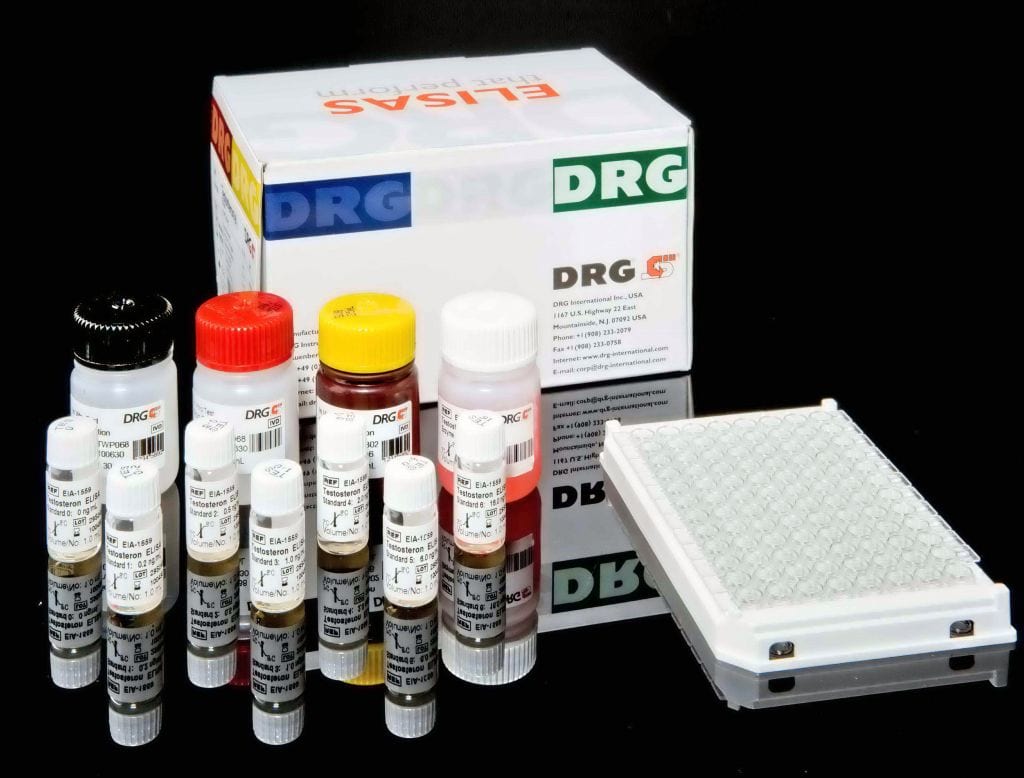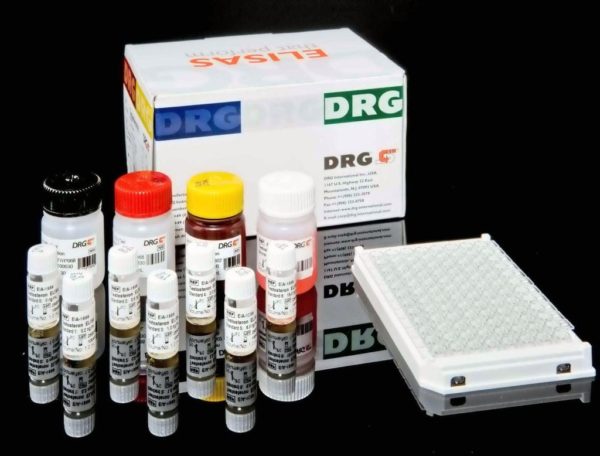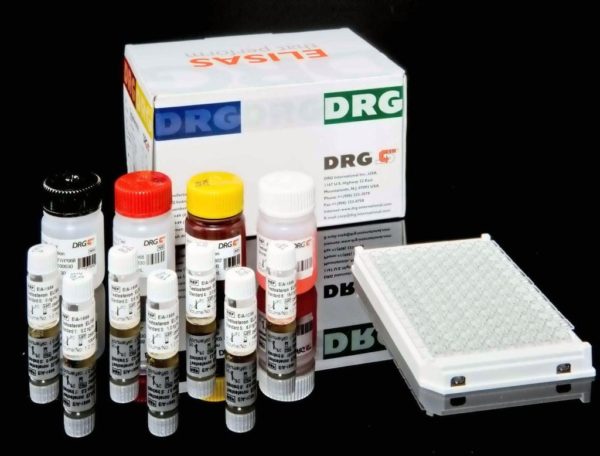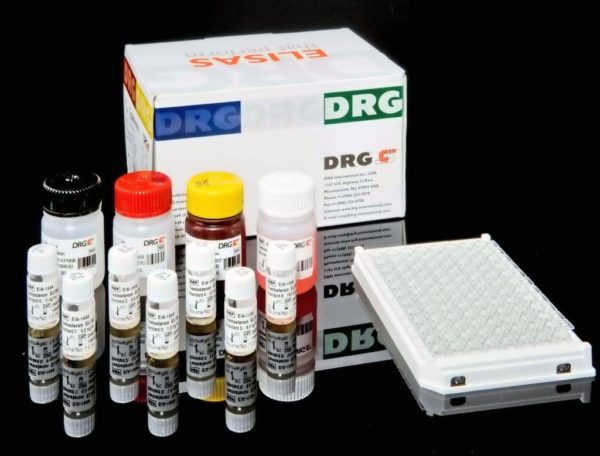Description
Enzyme immunoassay for the determination of IgG and IgM antibodies against the serotype Hantaan of Hantavirus in human serum. The Hantavirus (Hantaan) IgG/IgM-ELISA is suited for the qualitative detection of specific IgG and IgM antibodies against the Hantaan virus in cases of suspected hemorrhagic fever with renal syndrome (HFRS). The detection of infections with Puumala virus or other serotypes is only limited (see Interpretation of Results / Diagnostic Efficiency).
The hemorrhagic fever with renale syndrome (HFRS) is caused by viruses of the Hantaan type. Compared to nephropathia epidemica (NE), caused by infection with the closely related Puumala virus, generally HFRS is a severe infection, accompanied by uremia, respiratory paralysis and hemorrhages with typical shock syndromes, often with a fatal outcome. First signs of the disease are influenza-like symptomes. An initial thrombocytopenia and leucocytosis are also typical for HFRS. The Hantaan virus is predominantly found in Asia and the Balkan States and is transmitted to humans through direct contact with rodents, excrements of rodents or aerosoles. Soldiers, farmers and campers are particularly at risk.
The microtiter plate is coated with recombinant nucleo-capsidprotein of Hantaan virus. For determination of IgM antibodies, patient sera must be incubated with rheumatic-factor-IgG-absorbent before starting the test procedure in order to eliminate unspecific reactions caused by IgG antibodies or rheumatic factor. During the incubation period specific antibodies against the recombinant Hantaan antigen are bound to the solid phase. After washing, the specific IgG and IgM antibodies are detected with peroxidase-conjugated anti human IgG- and IgM antibodies respectively. Addition of substrate solution results in a color reaction, which is proportional to the bound specific antibody content. The absorbance is then measured photometrical.




